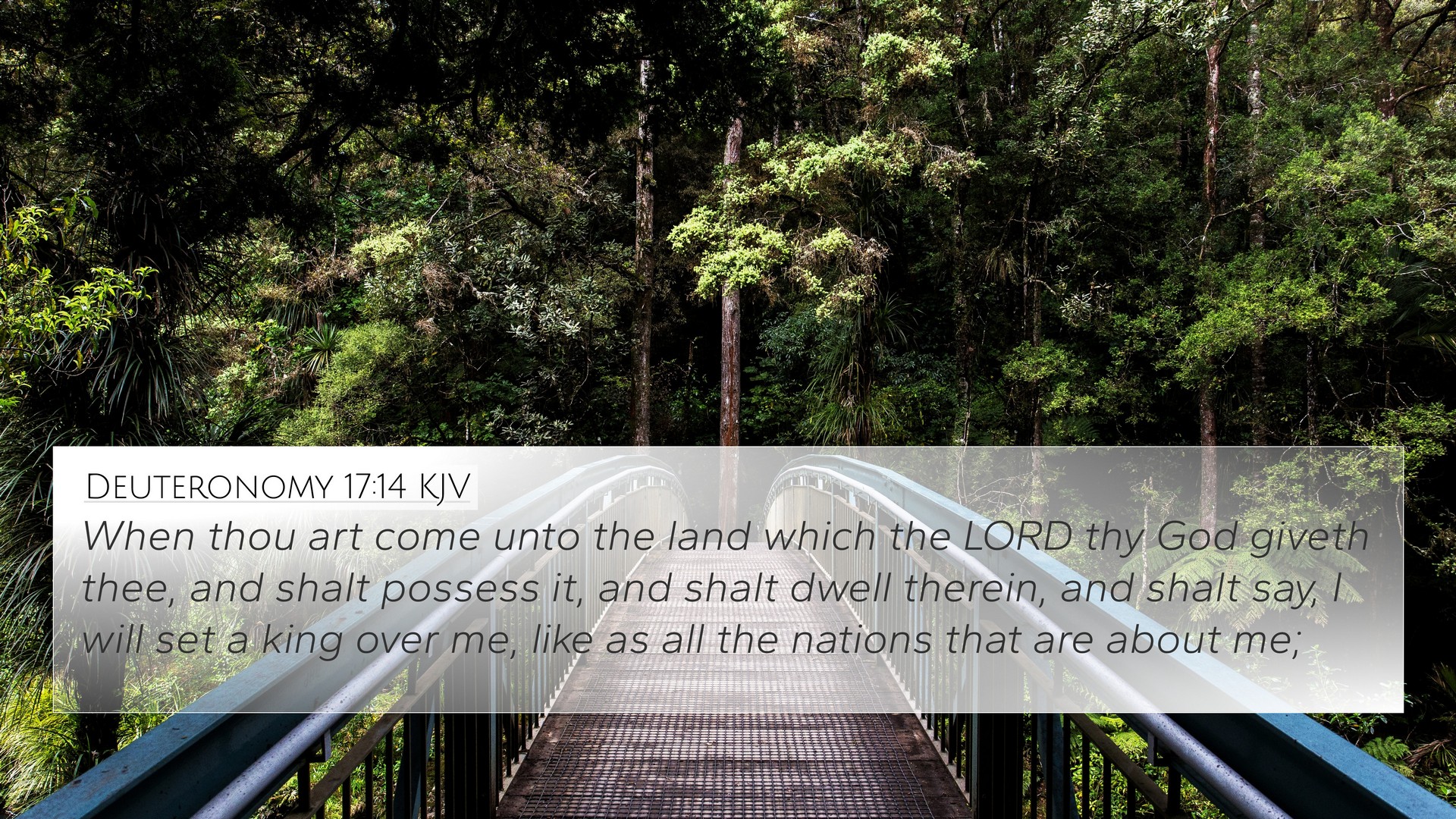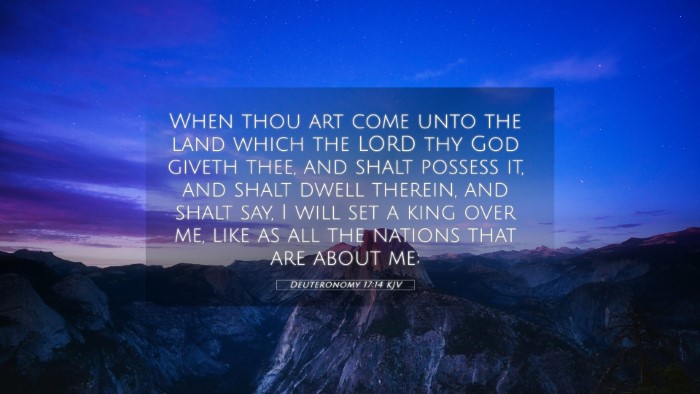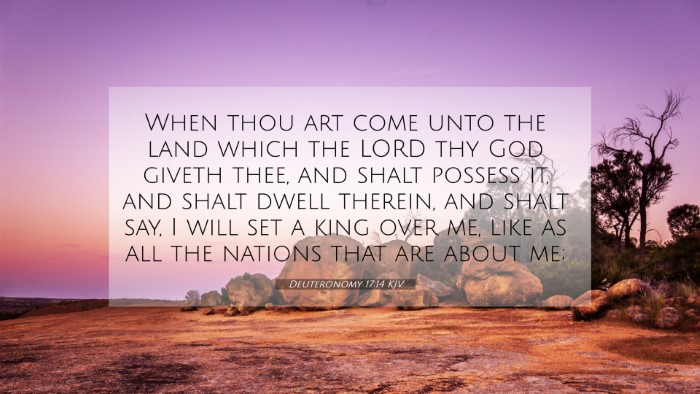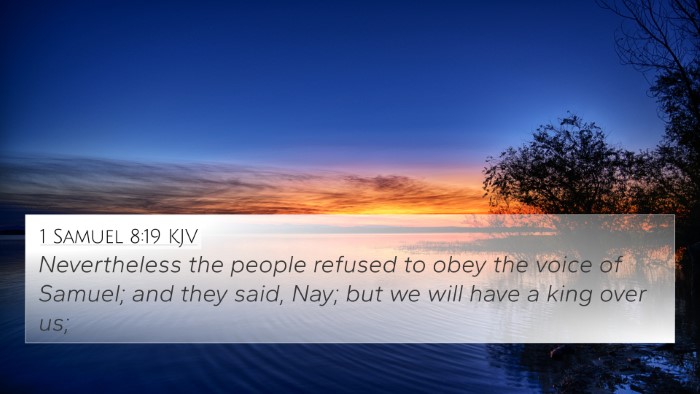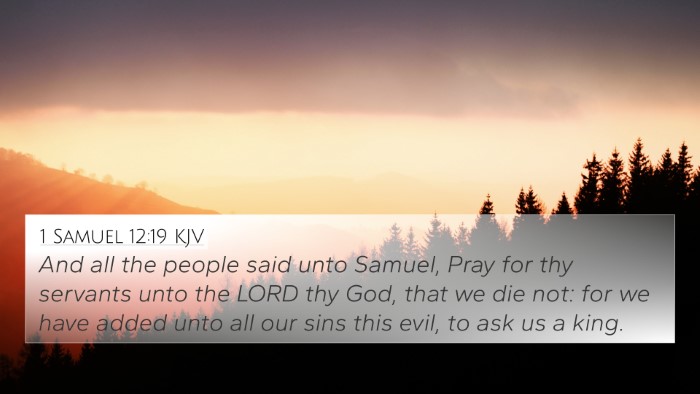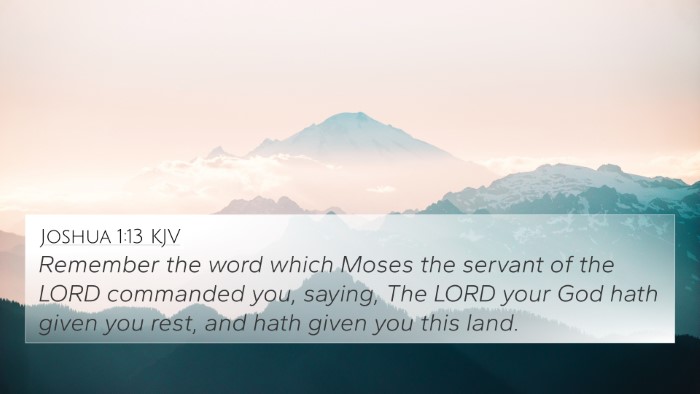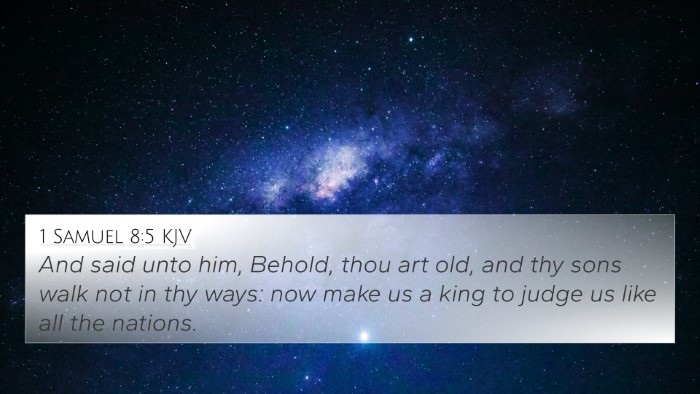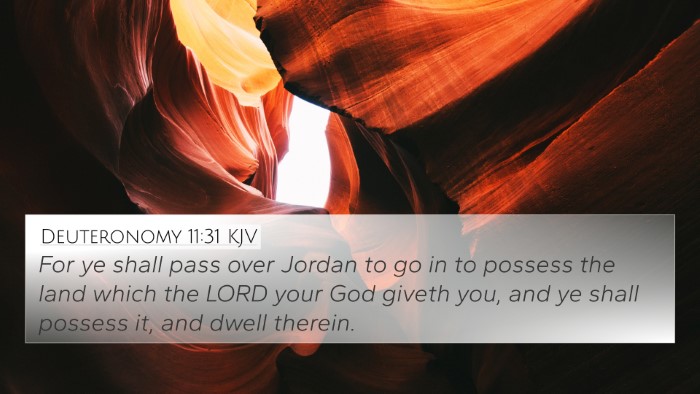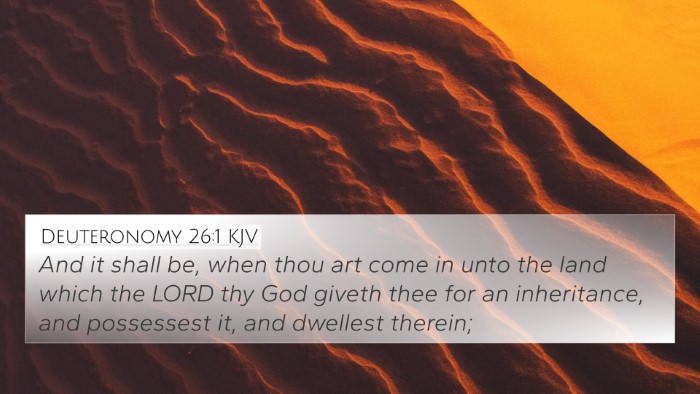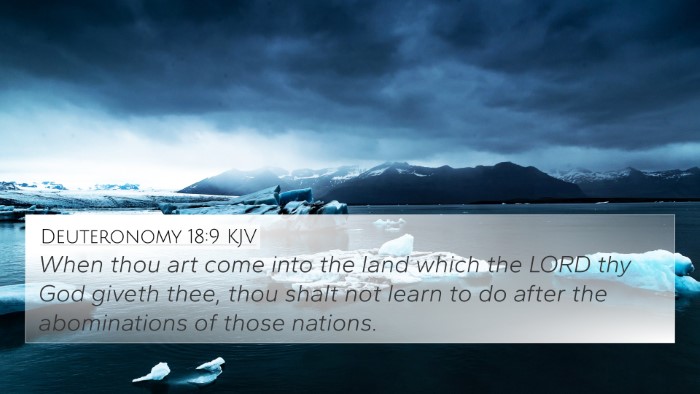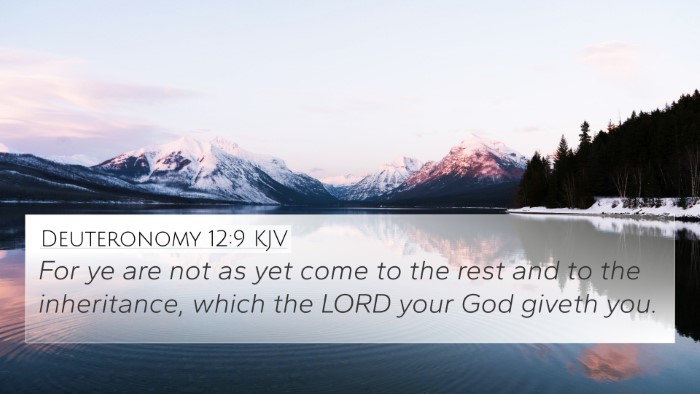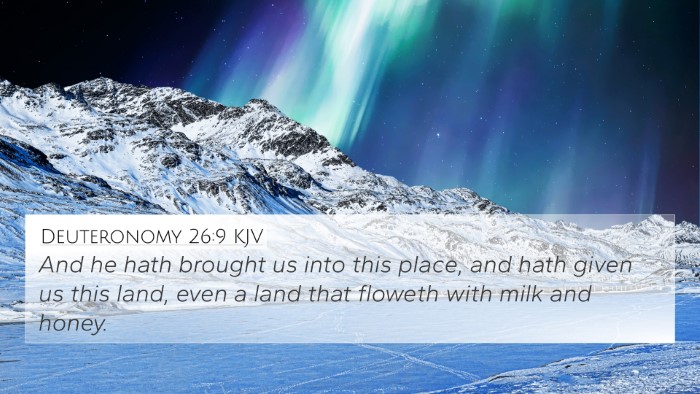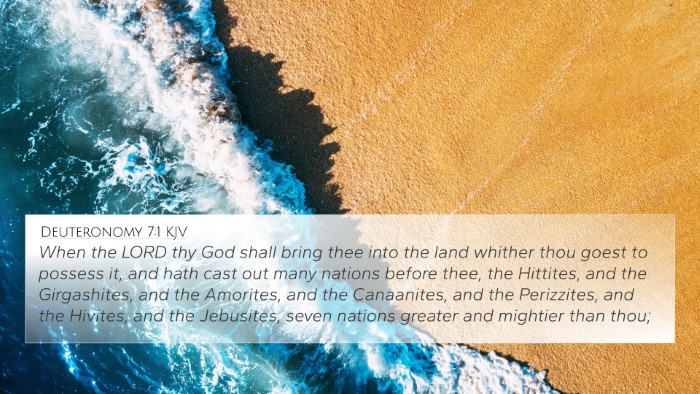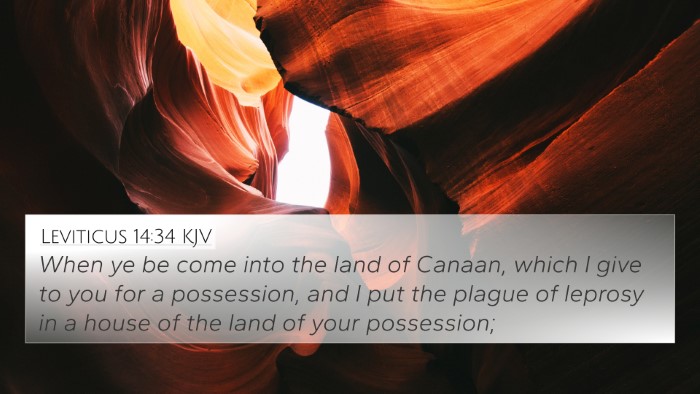Understanding Deuteronomy 17:14
Bible Verse: "When you come to the land which the LORD your God is giving you, and possess it and dwell in it, and say, 'I will set a king over me like all the nations that are around me,'” (Deuteronomy 17:14, NKJV)
Summary of Meaning
Deuteronomy 17:14 introduces the concept of monarchy in Israel, a significant departure from the previously established theocracy. The verse indicates a moment when the Israelites, after settling into the Promised Land, would seek to appoint a king, desiring to emulate the nations around them. This desire reflects both a yearning for centralized leadership and a challenge to their unique relationship with God.
Insights from Public Domain Commentaries
- Matthew Henry: Henry emphasizes that Israel's choice of a king illustrates their lack of faith and trust in divine governance, suggesting they sought a king not out of need but as a concession to their human weaknesses. This desire foreshadows the eventual corruption and failures of kingship in Israel.
- Albert Barnes: Barnes provides a practical interpretation by noting that the people’s request for a king is not inherently wrong, but their motivation reflects a desire to conform to worldly standards instead of relying on God. He points out that this choice would have consequences that affect the nation's relationship with God.
- Adam Clarke: Clarke discusses the progressive inclusion of kingship within the Israelite framework and mentions that this provision for a king was indeed foreordained by God, yet served as a rhetorical device to show that selecting a king could lead the people away from their covenant with God.
Cross-References for Deuteronomy 17:14
- 1 Samuel 8:5: Here, the elders of Israel demand a king, underscoring the direct connection between their desire and the actual implementation of monarchy.
- 1 Samuel 10:19: This verse highlights the rejection of God as their king, illustrating the theological implications of their desire for earthly authority.
- Hosea 13:10: Hosea points out the folly of kingship established apart from God, warning the people of the inevitable consequences of such choices.
- Psalm 47:7-8: This psalm illustrates God’s sovereignty, reminding believers that true kingship belongs to God, and no earthly king could replace divine authority.
- Proverbs 8:15-16: Wisdom is depicted as ruler over kings, showing that reliance should be on divine wisdom rather than human leadership.
- Matthew 6:33: Jesus encourages seeking the Kingdom of God above all, reinforcing the idea that spiritual governance is superior to political kingship.
- Revelation 19:16: Describes Jesus as King of Kings, contrasting the temporality of earthly reigns with God’s eternal sovereignty.
Analysis of Connections between Bible Verses
This verse serves as a critical juncture in the narrative of Israel, offering various themes for exploration. It raises questions about leadership, the nature of authority, and the Israelites' commitment to God's will versus human inclination.
Thematic Bible Verse Connections
Through examining Deuteronomy 17:14 alongside its cross-references, we can discern patterns and thematic ties that weaves through scripture:
- Spiritual Versus Earthly Authority: The recurring motif throughout the scriptures is the tension between divine rule and human governance.
- Consequences of Choices: Choices made by Israel reflect a broader biblical theme - choices have consequences. The demand for a king leads to the decline of faith in divine leadership.
- The Future of Kingship: Deuteronomy sets the stage for the eventual establishment of the Davidic dynasty, showing how God can work within human frameworks.
Conclusion
Deuteronomy 17:14 invites believers to reflect on their choices and the significance of divine authority. It highlights the importance of understanding the implications of seeking leadership outside God's provision and underscores the necessity of maintaining faith in God's governance.
Tools for Bible Cross-Referencing
For those seeking to deepen their understanding, utilizing tools such as Bible concordances and a Bible cross-reference guide can provide insight into the interconnectedness of scriptures. Here are some tips:
- Identifying Connections: Use a Bible concordance to find themes or words linked to the desired verse.
- Systematic Study: Apply a cross-reference Bible study method to tackle themes ranging from leadership to covenantal faith.
- Resource Utilization: Various Bible reference resources can aid in exploring comprehensive cross-references.
